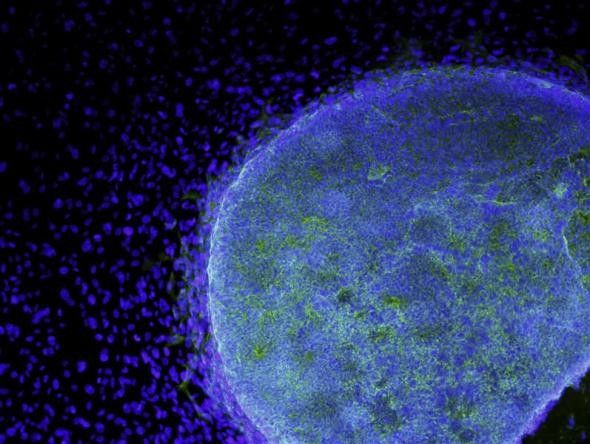A Bitter Pill to Swallow: EU Court Bans Patents on Embryonic Stem Cell Techniques

Europe's top court has ruled that scientists can't patent stem cell techniques when they use human embryos for research purposes, a move scientists have called devastating, but which has been hailed by Christian and moral rights groups as a revolutionary ruling.
The European Court of Justice in Luxembourg, the highest court in the European Union, said Oct. 18 that the new law would protect human embryos from any use that could undermine human dignity, according to The Herald Sun.
The case came to court because of Oliver Bruestle, an embryonic stem cell researcher at the University of Bonn. Dr. Bruestle filed a patent in 1997 on a technique to turn embryonic stem cells into nerve cells, a pioneering technique in the combatting of degenerative diseases.
A section of Greenpeace based in Germany, however, challenged the patent, arguing that it violated a ban on the patenting of commercial inventions that violate public order or morality.
A German court decided that Dr. Bruestle's patent was invalid. When he appealed the decision, Germany's federal court referred the matter to the European Union, who took it to the European Court of Justice in Luxembourg.
Embryonic stem cells can develop in any type of cell throughout the human body. Stem cell research is often used to develop replacement cells, which can repair damaged tissues and aid the cure of heart disease, stroke, and degenerative illnesses like Parkinson's disease. Stem cells are usually harvested from 80 to 100-cell embryos (about the size of a pinhead each) left over from fertility treatments that have been donated for research.
Far-Reaching Restrictions
The EU Court's ruling sharply restricts many of the current stem cell techniques for research within the European Union.
Using human embryos for stem cells has long been an incredibly controversial avenue of stem cell research.
Many groups oppose the use of embryos for stem cell research for religious or moral reasons. The process used to extract stem cells from the embryo destroys it. Some believe that destroying the donated embryo is the same as destroying a human life, and many opposed to abortion view embryonic stem cell research along the same lines.
Even the use of embryonic stem cell research has begun to fall out of style. In 2007, a method was performed that reprogrammed cells to turn into stem cells without the use of embryos, causing many to argue that embryonic stem cell techniques and research should be restricted or banned.
Scientists have long argued against this logic, saying that the research done with embryonic stem cells is crucial. They point out that the embryos are not taken from parents but mainly donated from clinics, and argue that rulings barring certain types of research will not profit anyone.
Patents will still be permitted in Europe if they involve therapeutic or diagnostic techniques that could be useful to the embryo itself, such as correcting birth defects or repairing birth trauma. But no embryonic stem cell techniques may be patented if they are to be used exclusively to further stem cell research. [Using embryos] for the purposes of scientific research, the Court ruled, is not patentable.
There are no such current restrictions on stem cell techniques in the United States, though many lobbying groups have attempted to institute such restrictions in the past. Many other countries are similarly open to all research techniques and their patenting.
It's a Bitter Pill to Swallow
Following the ruling, scientists denounced the EU Court's decision. Most are worried that the ruling will restrict stem cell research that could improve or save lives, and are concerned that companies will abandon funds for stem cell techniques because most patents will no longer be legal or profitable. Companies now will not invest in these technologies, Dr. Bruestle said after the ruling, because they cannot safeguard their investment.
This is a devastating decision which will stop stem cell therapies' use in medicine, stem cell researcher Pete Coffey, at University College London, told The Washington Post. The potential to treat disabling and life-threatening diseases using stem cells will not be realized in Europe.
Scientists are also concerned that the newly-restricted stem cell research developed in Europe can now be copied by rival scientists in the United States and other countries without fear of reprisal.
Without patent protection, some EU intellectual property laws may no longer hold, though European scientists can still get their halfway banned patents to at least protect their work in non-European markets.It's a bitter pill for all of us to swallow, Dr. Bruestle told The Wall Street Journal.
A Triumph of Ethical Standards over Commercial Interest
Others however, largely in religious lobbies and organizations, hailed the ruling restricting stem cell patents.
This is a triumph of ethical standards over commercial interest, said The Anscombe Bioethics Center at Oxford. The German Bishops Conference, a subdivision of the Catholic Church, similarly hailed it as a triumph of human dignity.
COMECE, the commission of Roman Catholic bishops conferences in the European Union, said the decision provided a scientific basis for the championing of the embryo. Fertizilation, COMECE said in a an interview with Reuters, marks the beginning of the biological existence of a human being that undergoes a process of development. Therefore the human embryo, at every stage of development, must be considered a human being with potential, and not just a 'potential human being.'
Christoph Then, a spokesman for Germany's Greenpeace, said the group is very satisfied with the ruling. We're not against research on human embryonic stem cells, said Then. But this involves the commercialization of the human body which we are against.
Alexander Denoon, a lawyer at a UK life sciences law firm, said patent lawyers will likely find ways around Europe's ban. Scientists could patent the discoveries that result from stem cell techniques rather than the techniques of embryonic stem cell research itself.
© Copyright IBTimes 2025. All rights reserved.





















